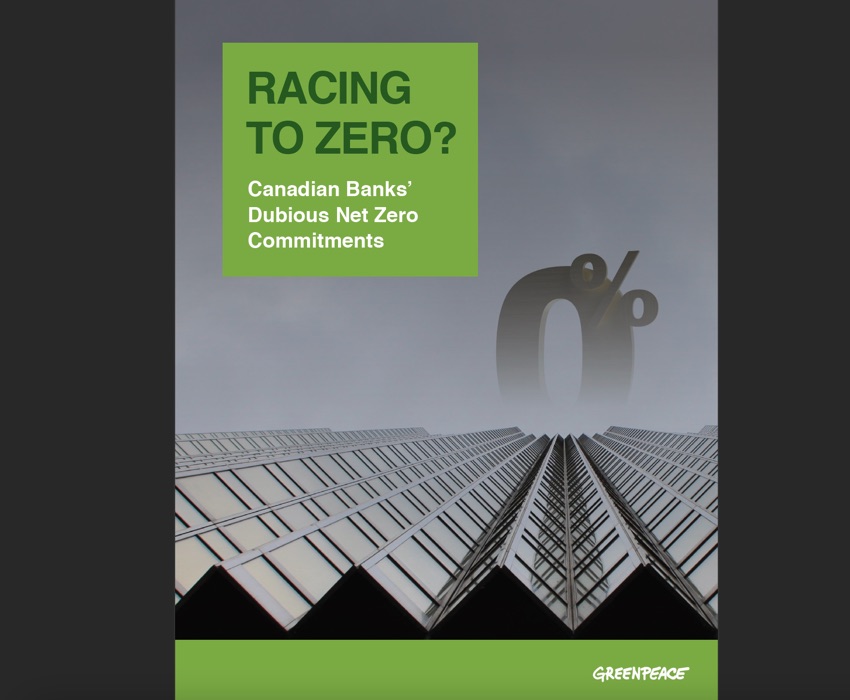RBC, other big 5 banks risk being ejected from UN climate club

In the run-up to the UN climate summit last November, Canada’s banks were among the last mainstream banks to join the Mark Carney-led global climate banking alliance. It looked like a great PR strategy at the time. We wonder if now they are having second thoughts, now that the criteria for staying a member includes getting out of fossil fuels on a timeline in line with the science of avoiding climate chaos.
A new Greenpeace report released this week shows that all 5 Canadian banks have a long way to go to meet the new minimum criteria set out by the UN in its newly tightened criteria. RBC and the other 4 banks who signed on, risk getting kicked out of the UN climate alliance in 2023 unless they develop credible climate plans.
“The UN is basically calling bullshit on greenwash,” Greenpeace Canada senior energy strategist Keith Stewart told Canada’s National Observer. “I think Canadian banks joined this thinking, ‘Oh, this is good public relations,’ and the UN is saying, ‘No, we actually expect you to take this seriously.’
“This is a really interesting moment for banks because they’re being told to put up or shut up. It’s either you get serious about having a plan to not just reduce emissions but eliminate them, or you’re out of this club,” he said, adding it’s not just a reputational hit, it’s a signal to investors the banks aren’t credible on climate.
Since joining GFANZ, each bank has increased its financing of fossil fuels, with RBC continuing to lead the pack.
The report was covered extensively in Canadian media, including this Canadian Press article that appeard in the Toronto Star, CBC, and many other papers.
Read coverage in the Toronto Star, National Observer, or Le Devoir in french.
